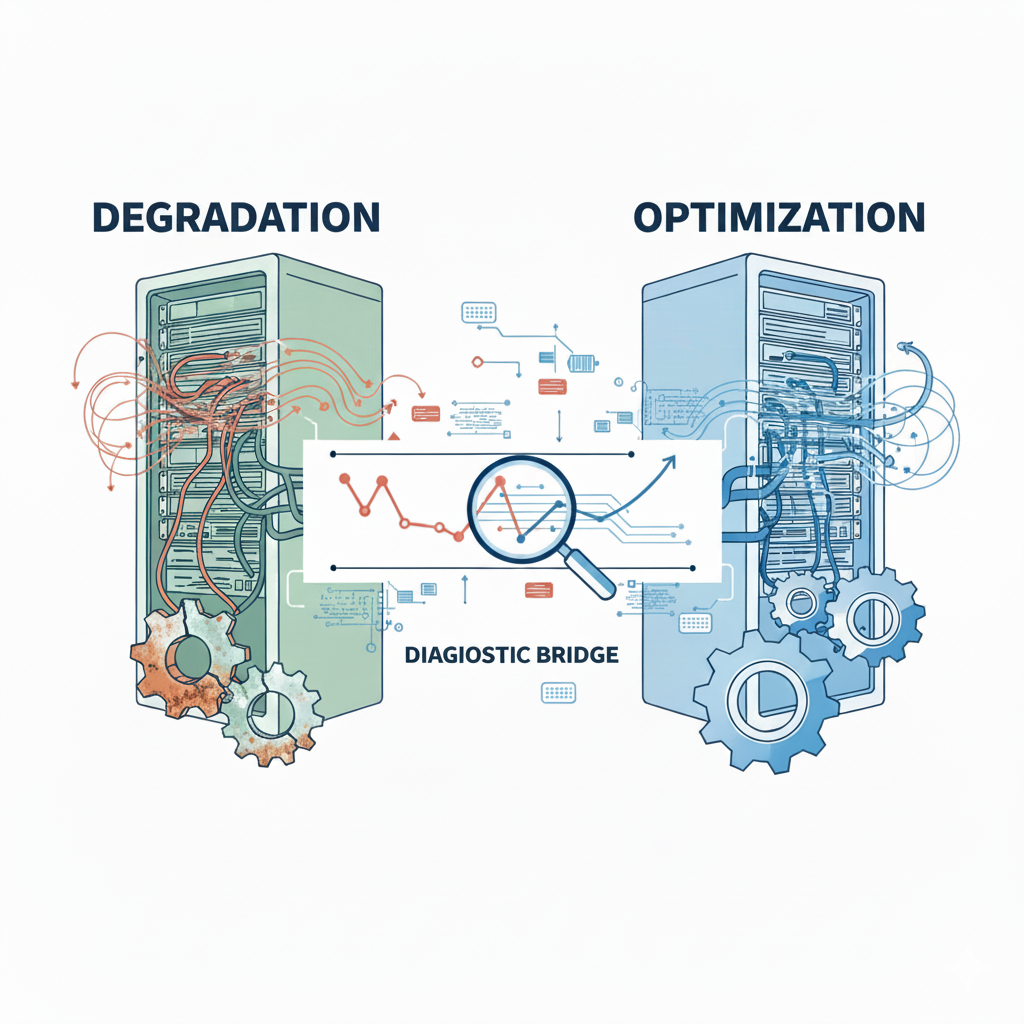The Business Case for integrated Design-Build-Comply Solutions

The Business Case for Integrated Design-Build-Comply Solutions
Single Contract Benefits and Risk Reduction for Mission-Critical Infrastructure
The development of hyperscale data centres represents one of the most complex construction challenges in modern infrastructure delivery, where design precision, construction quality, and regulatory compliance must integrate seamlessly to deliver facilities capable of supporting mission-critical operations throughout decades-long operational lifecycles. Traditional procurement approaches—fragmenting responsibility across multiple contractors, consultants, and compliance specialists—create interface risks, accountability gaps, and coordination challenges that threaten both project delivery and long-term facility performance.
Fragmented procurement models inevitably create adversarial relationships between design teams optimising for theoretical performance, construction teams focused on buildability and cost control, and compliance specialists working to satisfy regulatory requirements that may conflict with design intent or construction practicality. These competing priorities generate change orders, schedule delays, and quality compromises that undermine both project economics and facility performance.
At AuditCo, our partnership with Qcloud has enabled the development of integrated design-build-comply solutions that eliminate traditional procurement fragmentation whilst delivering superior project outcomes through unified responsibility, coordinated execution, and comprehensive risk management. This collaboration combines our established expertise in compliance management and risk mitigation with Qcloud’s integrated design-build capabilities and hyperscale infrastructure expertise.
The Economic Foundation of Integrated Project Delivery
Single contract procurement fundamentally transforms project economics by eliminating the adversarial dynamics that drive cost escalation in traditional procurement models. When design, construction, and compliance responsibilities operate under unified management, optimization decisions consider total project value rather than individual contract performance, creating alignment that reduces both initial capital costs and long-term operational expenses.
Cost certainty represents perhaps the most immediate benefit of integrated procurement, where single contract responsibility eliminates the change order mechanisms that traditional procurement models use to transfer risk between parties. Integrated delivery provides fixed-price commitment that encompasses design development, construction execution, and compliance achievement, creating predictable project economics that support accurate investment planning.
Schedule compression emerges naturally from integrated delivery where design, construction, and compliance activities proceed concurrently rather than sequentially. This concurrent execution eliminates traditional design-build handover delays whilst ensuring that compliance verification integrates throughout design and construction rather than creating approval bottlenecks during critical project phases.
Value engineering optimisation benefits from integrated delivery where design modifications can consider construction efficiency, compliance requirements, and operational performance simultaneously. Traditional procurement models prevent effective value engineering due to contract boundaries that limit optimisation scope, while integrated delivery enables system-wide optimisation that maximises project value.
Risk allocation improvements eliminate the cost premiums that contractors include to manage interface risks, design coordination uncertainties, and compliance approval delays. Integrated delivery consolidates these risks under unified management, reducing risk premiums whilst improving actual risk management through coordinated control.
Lifecycle cost optimisation becomes achievable when design decisions consider construction efficiency, commissioning requirements, and operational maintenance throughout integrated development. Traditional procurement fragments these considerations across contract boundaries, while integrated delivery enables holistic optimisation that reduces total ownership costs.
Risk Mitigation Through Unified Responsibility
Interface risk elimination represents the most significant risk reduction benefit of integrated procurement, where traditional contract boundaries create coordination gaps that generate disputes, delays, and quality issues. Unified responsibility eliminates these interface risks whilst creating clear accountability for project delivery and facility performance.
Design-build integration risks disappear when design and construction operate under unified management, preventing the design errors, constructability issues, and change order disputes that plague traditional design-bid-build procurement. Integrated delivery ensures that construction input influences design decisions whilst maintaining design intent throughout construction execution.
Compliance coordination risks diminish significantly when regulatory approval processes integrate with design development and construction planning from project inception. Traditional procurement approaches compliance as a separate discipline that may conflict with design intent or construction methods, while integrated delivery ensures compliance compatibility throughout development.
Quality assurance risks reduce through integrated delivery where quality management systems span design verification, construction inspection, and compliance confirmation under unified protocols. Traditional procurement creates quality gaps at contract interfaces, while integrated delivery maintains quality consistency throughout project delivery.
Schedule coordination risks eliminate when critical path activities coordinate under unified project management rather than competing across contract boundaries. Traditional procurement creates schedule conflicts between design completion, construction readiness, and compliance approval, while integrated delivery optimises schedule coordination across all project activities.
Cost escalation risks diminish through integrated delivery where cost management encompasses design optimisation, construction efficiency, and compliance achievement under unified budget control. Traditional procurement creates cost escalation through change orders that transfer costs between contracts, while integrated delivery manages costs holistically.
Performance guarantee risks consolidate under single contract responsibility, eliminating the warranty gaps and performance disputes that emerge at traditional contract boundaries. Integrated delivery provides unified performance commitment that encompasses design adequacy, construction quality, and compliance achievement throughout facility lifecycle.
Stakeholder Alignment and Communication Excellence
Single point of contact benefits streamline project communication and decision-making by eliminating the coordination complexity that multiple prime contractors create. Stakeholders communicate with unified project leadership rather than managing relationships across design consultants, construction contractors, and compliance specialists operating under separate contracts.
Decision-making efficiency improves dramatically when project decisions can be made within integrated project teams rather than requiring coordination across multiple contract relationships. Traditional procurement delays decisions through contract boundary negotiations, while integrated delivery enables rapid decision-making within unified project management.
Accountability clarity emerges from single contract responsibility that eliminates the finger-pointing and responsibility disputes that plague traditional multi-contract delivery. Stakeholders understand clearly where responsibility resides for all aspects of project performance, from design adequacy through construction quality to compliance achievement.
Communication protocol simplification reduces project management overhead whilst improving information quality through unified communication systems. Traditional procurement requires complex communication matrices that manage information flow across multiple contracts, while integrated delivery streamlines communication through unified project management.
Progress reporting consistency provides stakeholders with comprehensive project visibility through integrated reporting systems that encompass design progress, construction status, and compliance advancement. Traditional procurement fragments progress reporting across multiple contracts, while integrated delivery provides holistic project visibility.
Change management efficiency improves when project changes can be evaluated and implemented within integrated project teams rather than requiring renegotiation across multiple contract relationships. Integrated delivery enables rapid response to changing requirements whilst maintaining cost and schedule control.
Technical Integration and Performance Optimisation
Design optimisation benefits from integrated delivery where construction input and compliance requirements influence design decisions from project inception rather than creating conflicts during construction phases. This integration ensures that design solutions are both buildable and compliant whilst optimising performance characteristics.
Construction methodology optimisation emerges when construction planning integrates with design development and compliance requirements under unified project management. Traditional procurement separates these considerations, while integrated delivery enables construction method selection that optimises design intent, compliance achievement, and project economics.
Compliance integration throughout design and construction phases ensures that regulatory requirements enhance rather than compromise project performance. Traditional procurement treats compliance as a constraint that limits design options, while integrated delivery integrates compliance requirements as design criteria that guide optimisation decisions.
Performance verification integration ensures that commissioning and compliance testing coordinate with construction completion and operational handover under unified project management. Traditional procurement fragments these activities across contract boundaries, while integrated delivery coordinates verification activities for optimal project outcomes.
Quality management integration spans design quality assurance, construction quality control, and compliance verification under unified quality systems. Traditional procurement creates quality gaps at contract interfaces, while integrated delivery maintains quality consistency throughout project delivery.
Technology integration benefits from unified project management where design technology, construction methods, and compliance verification utilise coordinated technology platforms. Traditional procurement fragments technology utilisation across contracts, while integrated delivery optimises technology integration throughout project delivery.
Regulatory Compliance and Approval Efficiency
Regulatory relationship management simplifies dramatically when regulatory agencies interface with unified project leadership rather than managing relationships across multiple contractors responsible for different compliance aspects. Integrated delivery provides regulatory agencies with single point of contact whilst ensuring coordinated compliance strategies.
Approval process coordination eliminates the delays and conflicts that emerge when multiple contractors pursue separate approval strategies that may conflict or create regulatory confusion. Integrated delivery coordinates approval activities under unified compliance strategy that optimises approval timing and reduces regulatory risk.
Compliance documentation integration ensures that regulatory submissions provide comprehensive and coordinated information rather than the fragmented documentation that traditional procurement generates across multiple contracts. Integrated compliance management provides regulators with complete project information whilst reducing approval processing time.
Code compliance optimisation benefits from integrated delivery where building code requirements influence design decisions and construction methods under coordinated compliance management. Traditional procurement creates code compliance conflicts between design intent and construction methods, while integrated delivery optimises code compliance throughout development.
Permit coordination efficiency improves when permit applications coordinate under unified project management rather than competing across multiple contractor submissions. Integrated delivery ensures that permit requirements align with design development and construction planning whilst reducing permit approval delays.
Inspection coordination eliminates the scheduling conflicts and information gaps that traditional procurement creates when multiple contractors coordinate separate inspection requirements. Integrated delivery coordinates inspection activities under unified project management whilst ensuring comprehensive compliance verification.
Financial Management and Cost Control
Budget management integration provides superior cost control through unified financial management that encompasses design costs, construction expenses, and compliance costs under single budget accountability. Traditional procurement fragments budget management across multiple contracts, creating cost escalation risks and budget visibility gaps.
Cash flow optimisation benefits from integrated delivery where project expenditures coordinate under unified financial planning rather than competing across multiple contractor payment schedules. Integrated financial management optimises cash flow whilst maintaining project funding efficiency.
Cost reporting transparency improves through integrated delivery where project costs are visible across design, construction, and compliance activities under unified cost management. Traditional procurement fragments cost visibility across contract boundaries, while integrated delivery provides comprehensive cost transparency.
Change order elimination represents a significant financial benefit of integrated delivery where project changes are managed within unified contract scope rather than generating change orders across multiple contract relationships. Integrated delivery manages project changes within fixed-price commitment whilst maintaining scope flexibility.
Financial risk management improves through integrated delivery where financial risks are managed under unified project insurance, bonding, and warranty programs. Traditional procurement fragments financial risk across multiple contracts, while integrated delivery provides comprehensive financial risk management.
Value delivery optimisation emerges from integrated financial management where investment decisions consider total project value rather than individual contract performance. Integrated delivery maximises investment value through coordinated optimisation across design, construction, and compliance activities.
Technology Integration and Innovation Benefits
Digital integration benefits from unified technology platforms that span design development, construction management, and compliance verification under coordinated technology strategy. Traditional procurement fragments technology utilisation across multiple contractors, while integrated delivery optimises technology integration throughout project delivery.
Data management integration ensures that project data flows seamlessly between design, construction, and compliance activities under unified data management systems. Traditional procurement creates data silos across contract boundaries, while integrated delivery provides comprehensive project data integration.
Innovation implementation benefits from integrated delivery where innovative solutions can be developed and implemented across design, construction, and compliance activities under unified innovation strategy. Traditional procurement limits innovation scope to individual contract boundaries, while integrated delivery enables system-wide innovation.
Digital twin development benefits from integrated delivery where digital models integrate design information, construction progress, and compliance verification under unified digital modelling. Traditional procurement fragments digital information across contracts, while integrated delivery creates comprehensive digital facility models.
Automation integration optimises when construction automation, quality verification, and compliance documentation coordinate under unified project management. Integrated delivery enables automation optimisation across project activities whilst maintaining coordination efficiency.
Technology transfer benefits from integrated delivery where technology expertise transfers between design, construction, and compliance teams under unified project management. Traditional procurement limits technology transfer across contract boundaries, while integrated delivery maximises technology utilisation throughout project delivery.
Quality Assurance and Performance Excellence
Quality system integration spans design quality assurance, construction quality control, and compliance verification under unified quality management systems. Traditional procurement creates quality gaps at contract interfaces, while integrated delivery maintains quality excellence throughout project delivery.
Performance optimisation benefits from integrated delivery where performance requirements guide design decisions, construction methods, and compliance verification under coordinated performance management. Traditional procurement fragments performance considerations across contracts, while integrated delivery optimises performance achievement.
Testing coordination eliminates the conflicts and delays that traditional procurement creates when multiple contractors coordinate separate testing requirements. Integrated delivery coordinates testing activities under unified project management whilst ensuring comprehensive performance verification.
Deficiency resolution improves dramatically through integrated delivery where quality issues are resolved within unified project teams rather than requiring resolution across multiple contract relationships. Integrated delivery enables rapid deficiency resolution whilst maintaining quality standards.
Warranty coordination provides superior warranty coverage through integrated delivery where warranty responsibilities consolidate under single contract accountability. Traditional procurement creates warranty gaps at contract interfaces, while integrated delivery provides comprehensive warranty coverage.
Continuous improvement benefits from integrated delivery where lessons learned transfer between design, construction, and compliance activities under unified knowledge management. Traditional procurement limits improvement scope to individual contracts, while integrated delivery enables system-wide continuous improvement.
Long-term Partnership and Relationship Benefits
Strategic partnership development benefits from integrated delivery where long-term relationships develop between clients and integrated delivery teams rather than fragmenting across multiple contractor relationships. Integrated delivery enables strategic partnership that supports multiple project delivery and ongoing facility optimisation.
Knowledge retention improves through integrated delivery where project knowledge remains within integrated delivery teams rather than dispersing across multiple contractor organisations. This knowledge retention supports both current project optimisation and future project improvement.
Relationship management simplification reduces client overhead whilst improving relationship quality through unified client-contractor relationships. Traditional procurement requires complex relationship management across multiple contractors, while integrated delivery simplifies relationship management.
Performance accountability consolidates under integrated delivery where performance responsibility resides clearly within integrated delivery teams rather than fragmenting across multiple contractor relationships. This accountability clarity improves both performance achievement and relationship quality.
Trust development benefits from integrated delivery where trust relationships develop between clients and integrated delivery teams through unified project experience. Traditional procurement limits trust development across multiple contractor relationships, while integrated delivery enables comprehensive trust development.
Future opportunity development emerges from integrated delivery where successful project delivery creates opportunities for ongoing partnership rather than limiting relationships to individual project scope. Integrated delivery enables strategic relationship development that supports long-term infrastructure development.
The Integrated Approach: Delivering Superior Project Outcomes Through Partnership
Our partnership with Qcloud enables AuditCo to deliver comprehensive integrated design-build-comply solutions that eliminate traditional procurement fragmentation whilst delivering superior project outcomes through unified responsibility, coordinated execution, and comprehensive risk management. This collaboration combines our established expertise in compliance management and risk mitigation with Qcloud’s integrated design-build capabilities.
The integrated approach encompasses comprehensive project planning, coordinated execution, and unified performance accountability that ensures hyperscale facilities achieve optimal performance whilst maintaining cost certainty and schedule reliability. This methodology prevents the interface risks, coordination delays, and quality compromises that affect traditional procurement models.
Design-build integration provides optimal facility design through collaborative design development that incorporates construction expertise and compliance requirements from project inception. Integrated design-build eliminates the design errors, constructability issues, and change order disputes that plague traditional design-bid-build procurement.
Compliance integration ensures that regulatory requirements enhance rather than constrain project performance through early compliance planning, coordinated approval strategies, and integrated verification procedures. Compliance integration eliminates the approval delays and compliance conflicts that traditional procurement creates.
Risk management integration provides superior risk mitigation through unified risk assessment, coordinated risk response, and comprehensive risk monitoring that eliminates interface risks whilst optimising risk management efficiency. Integrated risk management reduces both risk probability and risk impact throughout project delivery.
Quality management integration maintains quality excellence through unified quality systems that span design verification, construction inspection, and compliance confirmation. Integrated quality management prevents quality gaps whilst ensuring quality consistency throughout project delivery.
Performance optimisation integration enables superior facility performance through coordinated optimisation that considers design efficiency, construction quality, and operational requirements under unified performance management. Integrated performance management maximises facility value whilst ensuring performance reliability.
Conclusion: Integrated Excellence for Infrastructure Success
Integrated design-build-comply solutions represent the evolution of infrastructure procurement from fragmented delivery models toward unified excellence that eliminates traditional procurement risks whilst optimising project outcomes. Single contract responsibility provides cost certainty, schedule reliability, and performance assurance that traditional procurement cannot deliver.
Our partnership with Qcloud enables AuditCo to deliver the integrated design-build-comply solutions that modern hyperscale infrastructure requires for successful project delivery and optimal long-term performance. By combining unified project responsibility with comprehensive technical expertise, we help clients achieve infrastructure excellence whilst maintaining cost efficiency and schedule certainty.
The investment in integrated design-build-comply solutions represents strategic preparation for infrastructure success throughout facility lifecycles. For hyperscale operators seeking to eliminate traditional procurement risks whilst optimising project outcomes, integrated design-build-comply solutions provide the unified excellence required for achieving infrastructure objectives.
AuditCo provides comprehensive audit, inspection, and compliance services for digital infrastructure projects worldwide. Our partnership with Qcloud enables integrated design-build-comply solutions that eliminate traditional procurement fragmentation whilst delivering superior project outcomes through unified responsibility and coordinated excellence. For more information about our integrated design-build-comply services, please contact our team at info@auditco.com.au



